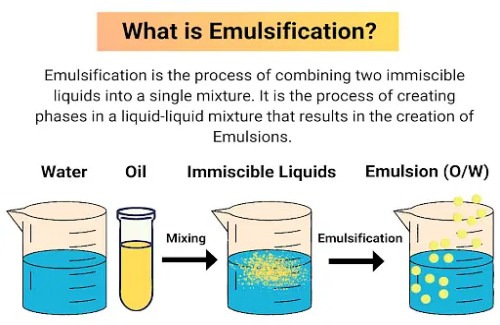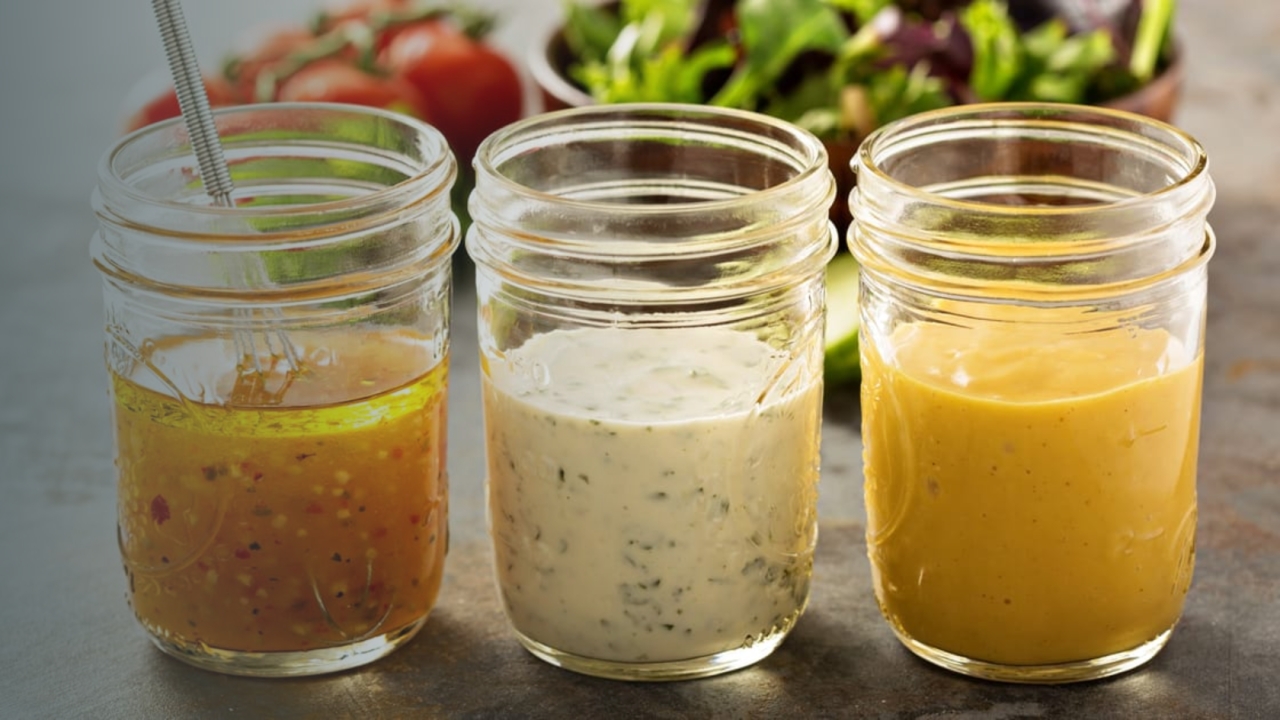Emulsifiers and Environmental Impact: What You Need to Know
Emulsifiers and Environmental Impact: What You Need to Know
Blog Article
The Science Behind Emulsifiers and Their Relevance in Modern Production
Emulsifiers play a vital role in contemporary manufacturing, acting as the unrecognized heroes that blend oil and water for a wide range of items. As customer choices shift towards cleaner labels, the need for cutting-edge emulsifiers is growing.
What Are Emulsifiers?
Emulsifiers are crucial agents in the globe of food and item production, acting as the glue that binds two otherwise immiscible fluids, like oil and water. Usual instances consist of lecithin found in egg yolks and soybeans, and mono- and diglycerides utilized in different processed foods.

When you whip up a salad dressing or indulge in a velvety treat, emulsifiers help maintain that perfect texture. Without emulsifiers, lots of foods would certainly divide, leading to unfavorable structures and tastes.
The Chemistry of Emulsification
When you mix oil and water, you might notice they do not blend quickly; that's where the chemistry of emulsification comes right into play. To conquer this challenge, emulsifiers are used.
These molecules have a hydrophilic (water-attracting) head and a hydrophobic (water-repelling) tail. When you include an emulsifier, its molecules position themselves at the oil-water user interface, lowering surface stress and permitting the droplets to blend. The emulsifier develops a protective layer around each droplet, preventing them from integrating back right into separate layers. Understanding this chemistry is vital for accomplishing security in items like dressings, creams, and sauces, making emulsification crucial in modern production.
Kinds Of Emulsifiers
Different kinds of emulsifiers play necessary duties in maintaining mixes of oil and water. All-natural emulsifiers, like lecithin from egg yolks or soy, are obtained from plants and animals, making them popular in food items.
On the various other hand, artificial emulsifiers, such as mono- and diglycerides, are chemically crafted to improve security and life span. They're generally made use of in processed foods and cosmetic products.
Additionally, you might find non-ionic, anionic, and cationic emulsifiers, each with one-of-a-kind residential properties that impact their efficiency. Non-ionic emulsifiers, for instance, work well in a vast array of pH levels, while anionic emulsifiers often tend to perform much better in alkaline problems. Understanding these kinds can assist you select the right emulsifier for your details application.
Mechanisms of Emulsion Development
Recognizing how emulsions form is crucial for developing stable combinations of oil and water. Emulsions occur when you distribute little droplets of one fluid into one more immiscible liquid, such as oil in water. This procedure requires energy, typically provided with anxiety or mixing. When you present an emulsifier, it decreases the surface area stress in between the two fluids, permitting them to mix more quickly.
The emulsifier molecules have a hydrophilic (water-attracting) head and a hydrophobic (oil-attracting) tail. When you add an emulsifier, these molecules organize themselves at the oil-water user interface. The hydrophilic heads communicate with water, while the hydrophobic tails anchor right into the oil. This develops a barrier that supports the beads, stopping them from coalescing.
Applications of Emulsifiers in Various Industries
Emulsifiers play an essential function across different industries, making your favorite foods smoother and a lot more satisfying. In cosmetics, they enhance product texture and stability, making certain a pleasurable application experience. And also, in pharmaceuticals, they aid deliver crucial ingredients successfully, boosting total efficiency.
Food Industry Makes Use Of
While you could not recognize it, emulsifiers play an essential role in the food industry, improving the texture, security, and service life of lots of items (Emulsifiers). They're frequently located in salad dressings, sauces, and mayo, aiding to blend oil and water for a smooth, consistent product. In baked products, emulsifiers enhance dough handling and keep dampness, resulting in a better texture and expanded freshness. They're likewise important in milk items, where they maintain emulsions in creams and gelato, protecting against separation. Even in snacks, emulsifiers help keep crunchiness and prevent stagnant tastes. By making sure harmony and quality, emulsifiers are significant to supplying the tasty items you delight in everyday, making them an important component in contemporary food manufacturing.
Cosmetic Solutions Benefits
When it concerns cosmetic formulations, emulsifiers are vital for producing items that feel extravagant and perform effectively. They assist blend oil and water, making sure a smooth and secure official source consistency in creams, creams, and lotions. You'll observe that emulsifiers boost product stability, stopping separation and prolonging service life. This indicates you can enjoy your preferred cream without fretting about it going negative too rapidly. Furthermore, emulsifiers boost the application experience, permitting also circulation and much better absorption right into the skin. By utilizing emulsifiers, you likewise achieve a more enticing texture, making your cosmetics really feel wonderful on your skin. Overall, emulsifiers play a crucial function in delivering top quality cosmetic products that meet your charm needs.
Pharmaceutical Applications Introduction
In the pharmaceutical industry, emulsifiers are crucial for formulating efficient drugs. You'll discover emulsifiers in various dosage forms, like creams, ointments, and liquid suspensions, improving the bioavailability of medicines.
The Effect of Emulsifiers on Item High Quality

By guaranteeing stable emulsions, you lower the threat of wasting and extend service life, inevitably conserving you time and money. You'll likewise discover that emulsifiers can enhance the bioavailability of active components in your products, making them extra reliable for consumers.
In addition, they allow you to produce innovative solutions that satisfy varied customer needs. Whether you're crafting a velvety clothing or an elegant cream, emulsifiers are necessary for achieving the desired outcomes. In short, by comprehending and leveraging the impact of emulsifiers, you can greatly boost the high quality of your products.
Future Trends in Emulsifier Development
As the need for cleaner labels and lasting items rises, the growth of brand-new emulsifiers is readied to advance considerably. You'll notice a shift in the direction of plant-based and all-natural emulsifiers, driven by customer choices for ingredients that are eco-friendly and less processed. Innovations in biotechnology will likely enhance the capability and performance of these emulsifiers, allowing producers to produce steady formulations with less additives.
You might also see a rise in multifunctional emulsifiers that not just stabilize solutions yet additionally improve taste, appearance, or nutritional value. This pattern might streamline basics ingredient checklists while improving product efficiency.
Furthermore, with breakthroughs in nanotechnology, emulsifiers might be engineered at the molecular degree to attain extraordinary security and efficiency. Emulsifiers. As you discover these patterns, you'll locate that the future of emulsifier growth is not nearly capability, yet also regarding accepting sustainability and openness in components
Regularly Asked Inquiries
Are Emulsifiers Safe for Usage in Food Products?
Yes, emulsifiers are normally secure for usage in food items. They have actually been extensively studied and authorized by food safety and security authorities, so you can appreciate your preferred foods without fretting regarding their influence on your wellness.
Can Emulsifiers Be Derived From Natural Resources?
Yes, you can obtain emulsifiers from all-natural sources. Ingredients like lecithin from egg yolks or soybeans and casein from milk are typical. These all-natural emulsifiers assist stabilize blends without artificial additives, making them prominent in different products.

How Do Emulsifiers Affect Service Life of Products?
Emulsifiers maintain blends, protecting against splitting up and wasting - see this page Emulsifiers. By keeping uniformity, they expand products' life span, making sure quality and top quality. You'll observe that emulsifiers help maintain your favored foods and cosmetics performing more than time
What Are Prospective Adverse Effects of Emulsifiers?
You might experience digestion issues when consuming products with emulsifiers, as they can interfere with intestine bacteria. Some studies recommend prospective links to inflammation or allergic reactions, however more research study is required to totally recognize these results.

Exist Alternatives to Typical Emulsifiers?
Yes, there are choices to traditional emulsifiers. You can discover options like natural gum tissues, starches, or lecithin. Each alternate deals distinct residential properties, so experiment to discover what jobs best for your certain application.
Report this page